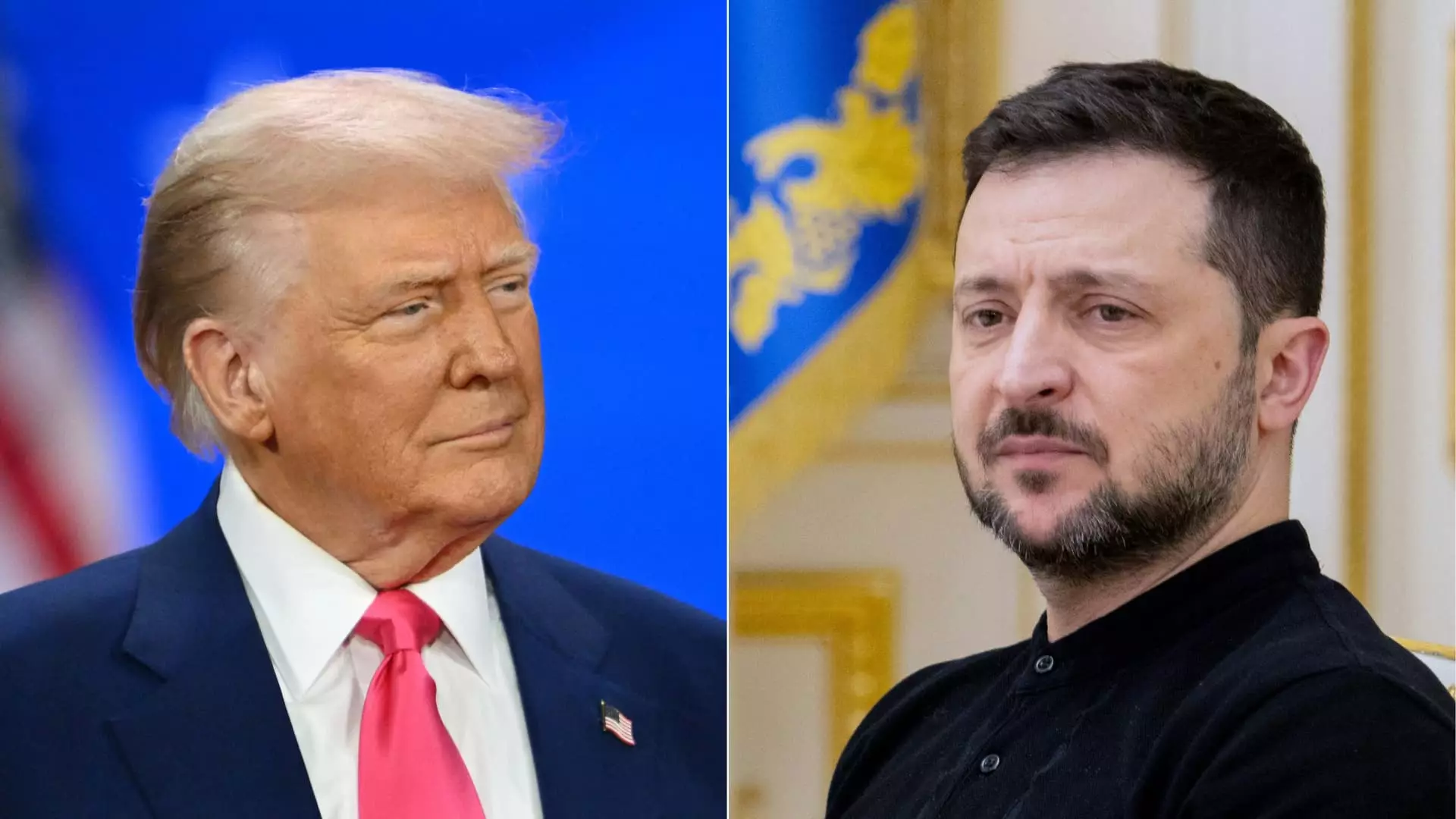In recent political discourse, there has been a troubling tendency to shift blame for the ongoing conflict in Ukraine onto Kyiv’s leadership. Former President Donald Trump’s assertion that Ukrainian President Zelenskyy holds the key to ending the war is not only an oversimplification but also a dangerous mischaracterization of complex geopolitical realities. Framing the conflict as a matter of “willingness” rather than structural and historical grievances reduces an intricate crisis into a mere political bargaining chip. It dismisses Ukraine’s sovereignty and its right to defend itself against an aggressive neighbor, while fueling narratives that undermine the legitimacy of Ukrainian resistance. This perspective dangerously aligns with Kremlin narratives that prioritize Russian interests above Ukrainian independence, perpetuating a false dichotomy that ignores the agency and resilience of the Ukrainian people.
The Flawed Premise of “Immediate Resolution”
Proposing that Ukraine could “end the war almost immediately” if it simply capitulates or makes concessions is an irresponsible simplification of a conflict rooted in history, identity, and security concerns. Zelenskyy’s rejection of Moscow’s demands to cede territorial control—particularly in eastern Ukraine—reflects a fundamental understanding that peace cannot be achieved by handing over key defensive positions. These regions are vital for Ukraine’s sovereignty and security, and conceding them would not only diminish Ukraine’s ability to defend itself but also embolden future aggressors. Advocates of rapid negotiations based on Russian terms underestimate the cost of such concessions, risking irreversible damage to Ukraine’s territorial integrity and regional stability. Peace, in this context, is not a matter of immediate surrender but a long-term pursuit requiring resilience, diplomacy, and, crucially, international support.
The Illusion of Russian Motivations and Western Complicity
A critical flaw in many discussions around Ukraine is the naive acceptance of Russia’s narrative that NATO’s expansion and alleged discrimination against Russian speakers are the core “root causes” of the war. This perspective dangerously absolves Moscow of accountability for its blatant violations of international law and its unprovoked invasion in 2022. While NATO’s eastward expansion has been a contentious issue, it cannot justify a full-scale invasion. To suggest that peace depends on concessions that undermine NATO or diminish Ukraine’s sovereignty grossly compromises Western security interests. It risks capitulation to authoritarian expansionism by appeasing Russian grievances at the expense of democratic principles. Sustainable peace must confront Russia’s imperial ambitions head-on, rather than try to appease them through dangerous negotiations that threaten the integrity of European security.
The Center-Left Responsibility: Balancing Assertiveness with Diplomacy
As a voice within center-wing liberalism, I firmly believe that the path to peace in Ukraine demands moral clarity and strategic patience. While it is tempting to advocate for immediate negotiations, it must be made clear that peace achieved through concessions that undermine Ukraine’s sovereignty is neither sustainable nor just. Western nations must stand firm against Russian demands that threaten regional stability and democratic values. At the same time, diplomacy must remain open, seeking avenues to de-escalate and promote diplomatic solutions that uphold Ukraine’s independence, honor the sacrifices of its people, and deter future aggression. Realpolitik is essential—but it should never come at the expense of international law or the rights of sovereign nations. The idea that Ukraine should accept a “freezing” of conflict or trade territory for peace is a dangerous illusion that only prolongs suffering and empowers autocratic regimes.
The Reality Check: Long-Term Stability over Short-Term Gains
The quest for peace must transcend electoral cycles and political expediency. The world cannot afford to fall into the trap of false promises that endorse capitulation in exchange for temporary calm. Genuine stability requires a firm commitment to Ukraine’s sovereignty, coupled with strategic support from the West and international institutions. Attempts to frame the conflict as solely a matter of Ukrainian choices ignore the broader geopolitical stakes and the necessity of upholding international norms. There is no quick fix—only a steadfast resolve to support Ukraine’s right to defend itself, to resist Russian imperialism, and to foster a diplomacy that ultimately guarantees a just and sustainable peace. The dangerous allure of quick resolutions based on Russian terms is a perilous deception—an illusion that undermines the foundational principles of sovereignty, security, and justice.


Leave a Reply